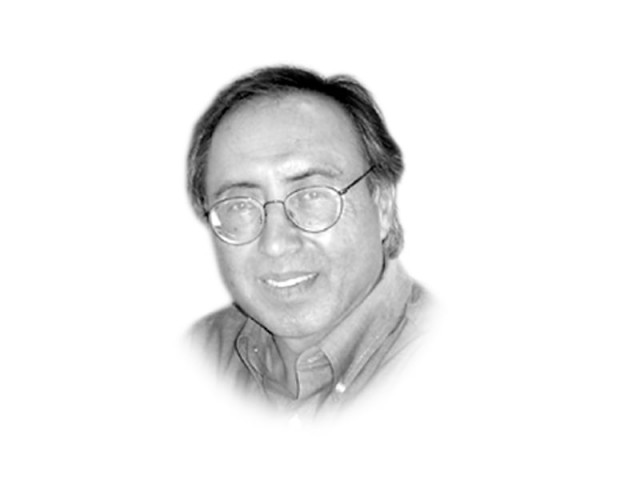In a state of war
War against terror cannot be won without engaging in yet another long war - of ideas against intolerance, extremism.

The TTP, its affiliates and like-minded groups are children of the violent ideology of al Qaeda and its flawed vision of a global war against the West. Their political conception, birth and growth bear the deep imprint of al Qaeda, which, like the Taliban in Afghanistan and Pakistan, has a grand regional design of establishing an Islamic state — or states — through weakening the two by spreading violent chaos. They have acquired deadly skills to terrorise people and hold them hostage by weakening the presence and writ of the state. Their plan is to change the character of the Pakistani nation and from there, to take their ideology and war to other Muslim countries in the neighbourhood and beyond. Such success is questionable but they had a mini hold in Swat for a while.
How they gradually evicted Swat from the tribal areas and established their power base there is a long story. Although the traditional system of local power had begun to change since the Afghan jihad of the 1980s, as commanders (warlords) and militias with financial muscle, guns and recruits began to assert a new form of authority. However, the real change took place after the 2001 ouster of the Taliban regime next door in Afghanistan. Al Qaeda and Afghan Taliban leaders had used this terrain and local contacts in the Federally Administered Tribal Areas of Pakistan (Fata) for their war in Afghanistan before. In 2001, the American-led offensive pushed them back into this difficult region where they struck deals with local commanders. During the anti-Soviet war and prior to it, these regions had been on the frontline of wars in and around Afghanistan. This harsh terrain proved to be an ideal sanctuary for the escaping Taliban and al Qaeda.
The Pakistani state faces a multitude of problems in the war against terrorism, which is most likely to be a long war during which it will have to maintain public support at home and a flow of adequate resources from friendly countries like the United States that supports military operations through the Coalition Support Fund. At the same time, it will be important that it sustains the morale of the armed forces in this war. How quickly the country can consolidate its gains against the Taliban militia would depend largely on whether or not the Pakistani political class, known for its incompetence and ineffectiveness, sticks together in reviving the moderate character of the state and society.
Finally, the war against terrorism cannot be won without engaging in yet another long war: the war of ideas against intolerance and extremism. It is necessitated by the fact that major themes of culture and politics in the Muslim world, including Pakistan, continue to oscillate sharply between modernity and radical Islam, between secularism and absolutist religious worldviews, between communitarian identity and individual rights, between abstract, non-territorial conception of the Islamic community and a territorial state based on citizenship.
Let us make our choice: a democratic, modernist Pakistan.
Published in The Express Tribune, November 27th, 2012.















COMMENTS
Comments are moderated and generally will be posted if they are on-topic and not abusive.
For more information, please see our Comments FAQ